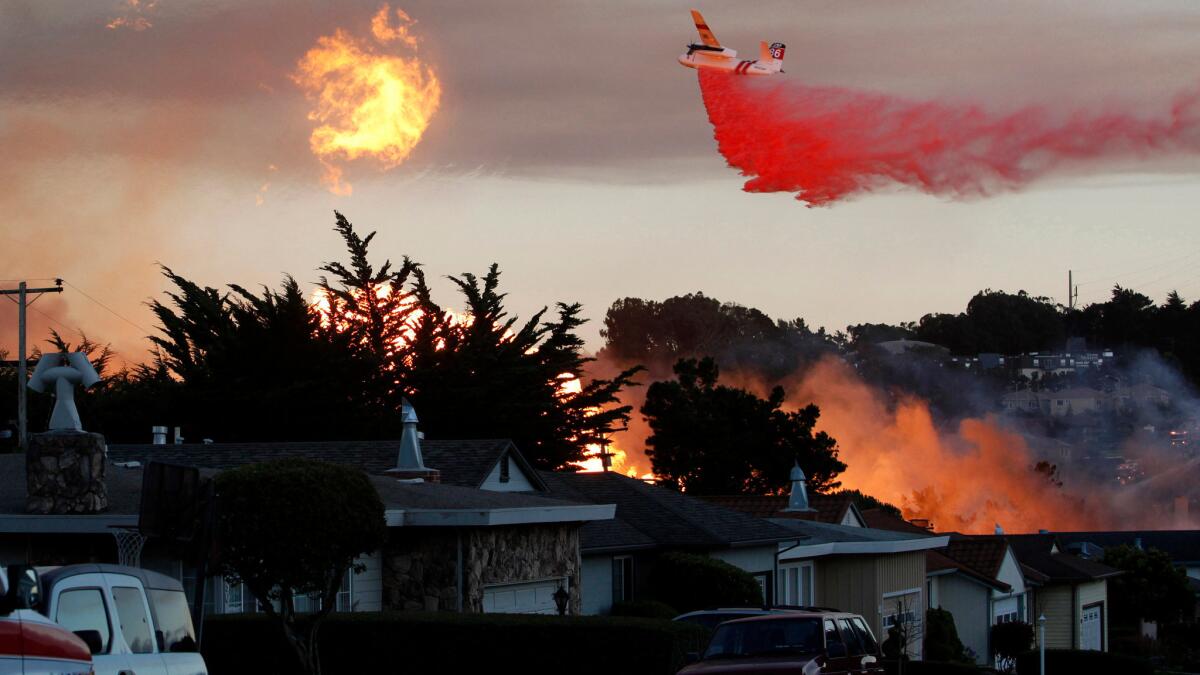Prosecutor: Pacific Gas ignored regulations to cut costs

- Share via
Reporting from San Francisco — Pacific Gas & Electric Co. ignored pipeline safety regulations to cut costs and tried to cover up its illegal practices by misleading federal officials investigating a deadly explosion of one of its natural gas pipelines in the San Francisco Bay Area, a federal prosecutor said Friday as a criminal trial against the utility giant got underway.
PG&E knew exactly what to do to comply with regulations but didn’t do it, Assistant U.S. Atty. Hallie Hoffman said in her opening statement in San Francisco.
“Instead, it chose a cheaper method that did not ensure the safety of pipelines running through high-consequence areas,” Hoffman said.
PG&E attorney Steven Bauer said the company’s employees did what they could in the face of ambiguous regulations they struggled to understand.
A PG&E natural gas pipeline exploded in the city of San Bruno six years ago. The blast killed eight people and destroyed 38 homes. During the investigation that followed, prosecutors say the San Francisco-based utility misled federal officials about how it was identifying high-risk pipelines.
The standard the company used violated safety regulations and led to a failure to classify the San Bruno pipeline and other similar pipelines as high risk, prosecutors said in a 2014 indictment.
PG&E has pleaded not guilty to one count of obstruction and multiple charges that it violated pipeline safety regulations by, for example, ignoring errors in its records about pipelines. It faces a $562-million fine if convicted.
California regulators fined the company $1.6 billion for the blast last year.
ALSO
Refinery outages and delays in Torrance repairs cause higher L.A. gas prices
Water conservation has saved energy, cut greenhouse gas emissions, study finds
Southern California Gas Co. ordered to stop cleaning Porter Ranch-area homes
More to Read
Inside the business of entertainment
The Wide Shot brings you news, analysis and insights on everything from streaming wars to production — and what it all means for the future.
You may occasionally receive promotional content from the Los Angeles Times.










